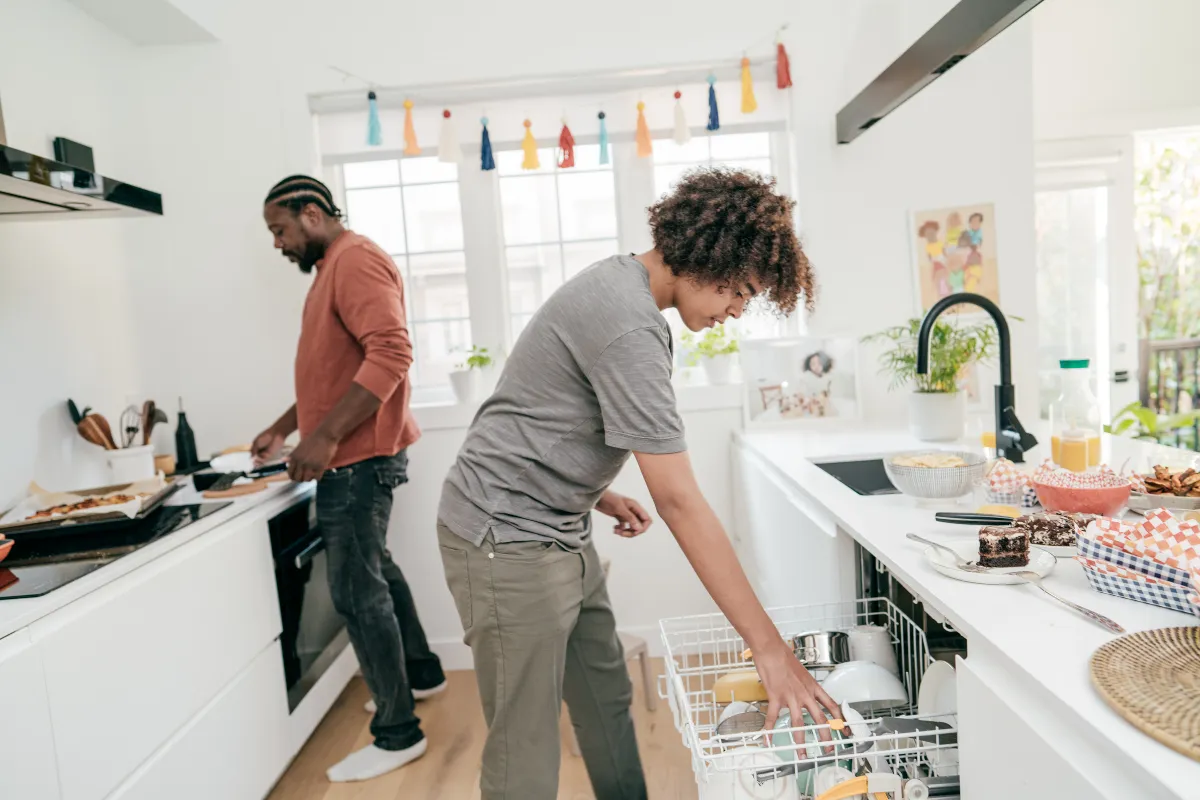📑FHS Mini Article
What to Expect
In this article, we share practical strategies to help individuals smoothly transition into group home living. The information discussed includes adjusting to new surroundings, respecting house guidelines, and building strong, supportive relationships with housemates. We also explain how patience, communication, and community involvement create a positive and comfortable shared living experience.
Adapting to Group Home Living: Strategies for a Smooth Transition and Building Strong Connections
Making the move to a group home is an important life transition that can bring both excitement and challenges. This shift involves adjusting to a new living environment while also creating meaningful connections with fellow residents. At Future Hope Solutions (FHS), we believe that shared living should feel safe, supportive, and structured. In this article, we provide practical tips and strategies to help individuals ease into group home living, adapt to their new surroundings, and build strong, positive relationships with housemates.

Embrace an Open Mindset
Approach your transition with an open and positive outlook. Moving into a group home is an opportunity to meet new people, learn from different perspectives, and become part of a supportive community. A willingness to adapt and grow makes the experience smoother and more rewarding.

Learn the House Guidelines
Each FHS property has clear house guidelines to ensure safety, respect, and accountability. Taking the time to understand expectations—such as quiet hours, use of common spaces, and shared responsibilities—helps everyone feel comfortable and creates a stress-free environment.

Communicate Your Needs and Boundaries
Good communication is the foundation of successful shared living. Be open about your needs, preferences, and boundaries while also listening to others. Honest, respectful communication helps build mutual trust and prevents misunderstandings.

Participate in Community Activities
Shared meals, group activities, or simple conversations in common areas are great ways to connect with housemates. At FHS, we encourage residents to get involved and engage with others—because building friendships and support systems is a key part of the shared housing experience.

Respect Privacy and Personal Space
While group living involves community, it’s equally important to respect individual privacy. Knock before entering someone’s room, avoid using personal items without permission, and be mindful of noise levels. Respect for personal space fosters trust and comfort for everyone.

Contribute to Shared Responsibilities
Living in a group home means everyone has a role to play. Contributing to cleaning, organizing, and other household responsibilities ensures the home runs smoothly. At FHS, we believe accountability strengthens the living environment and helps residents feel more at home.

Find Common Ground
Look for shared hobbies, goals, or interests with your housemates. Whether it’s cooking, music, fitness, or career aspirations, finding common ground can be a great way to spark conversation and build lasting connections.

Be Patient and Understanding
Adjusting to new people and routines takes time. Be patient with yourself and others as you navigate group home living. Remember that everyone comes from different backgrounds—showing empathy and understanding helps create an inclusive, supportive community.

Seek Support When Needed
If challenges arise, reach out for guidance. FHS provides structure and resources to help residents navigate obstacles and make the most of their housing experience. Asking for support is a sign of strength and helps ensure a smoother transition.

Final Thoughts
Transitioning into group home living is more than just moving into a new space—it’s about adapting, growing, and building connections. By embracing an open mindset, respecting house guidelines, communicating clearly, and participating actively, you can create a positive living experience and build meaningful relationships. At FHS, we provide the safe and supportive environment needed for residents to thrive.

Frequently Asked Questions For Transition and Connections
Q1. What should I expect when moving into a group home?
You can expect a supportive environment where clear guidelines, shared responsibilities, and opportunities to connect with housemates help make the transition smoother.
Q2. How can I adjust to living with new people?
Keep an open mindset, communicate your needs clearly, and participate in group activities to build positive connections.
Q3. Will I still have privacy in a group home?
Yes, respecting personal space and boundaries is a core value. Each resident has their own private area, and mutual respect ensures comfort for everyone.
Q4. How are responsibilities handled in shared housing?
All residents contribute to household tasks such as cleaning common spaces and maintaining a safe, organized home.
Q5. What if I need extra support adjusting?
If challenges come up, you can reach out to FHS staff or resources for guidance and support to make your living experience positive.
Looking to learn more...
Fill out the short form or call us now at 810-207-6332
Legal Disclaimer
Future Hope Solutions LLC (“FHS”) provides housing management only and does not offer or guarantee third-party services such as medical care, counseling, case management, or employment assistance. Any referrals to outside programs are for informational purposes only, and FHS is not responsible for the actions or outcomes of third-party providers. By engaging with FHS, all clients and partners acknowledge that FHS’s role is limited to housing and assumes no liability beyond that scope.
Note: Properties are viewed in person by referral partners and by video walkthrough for potential clients.
